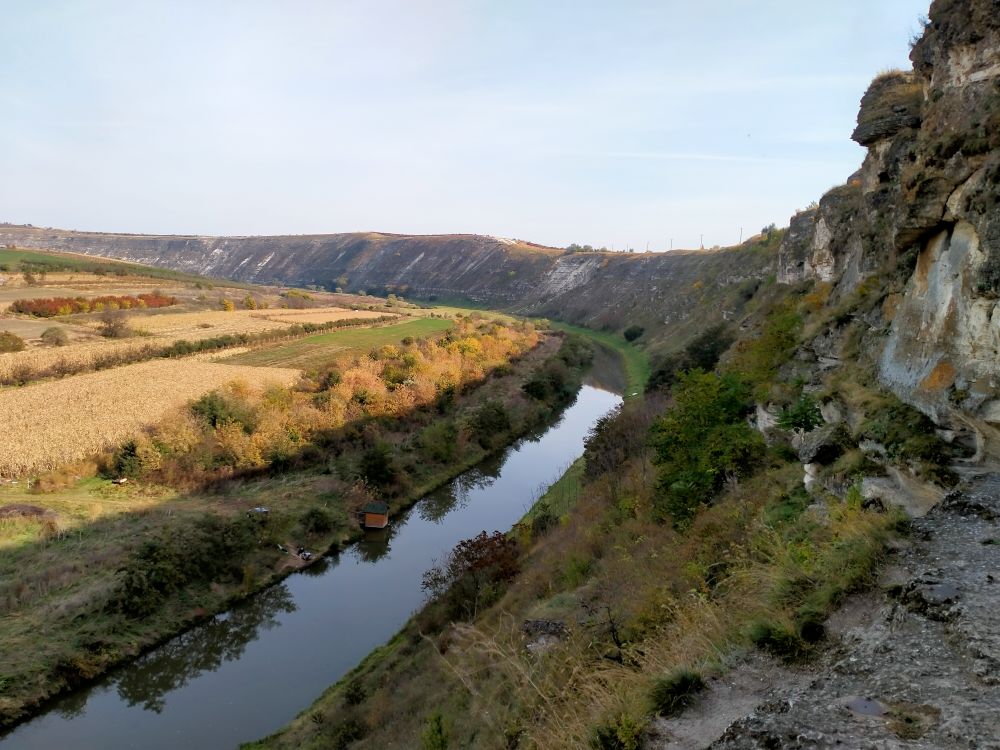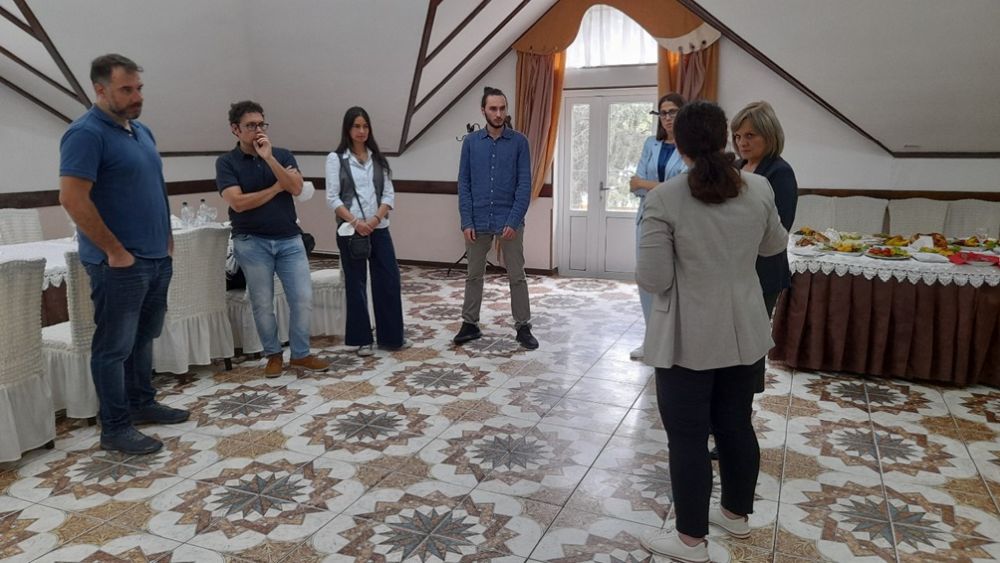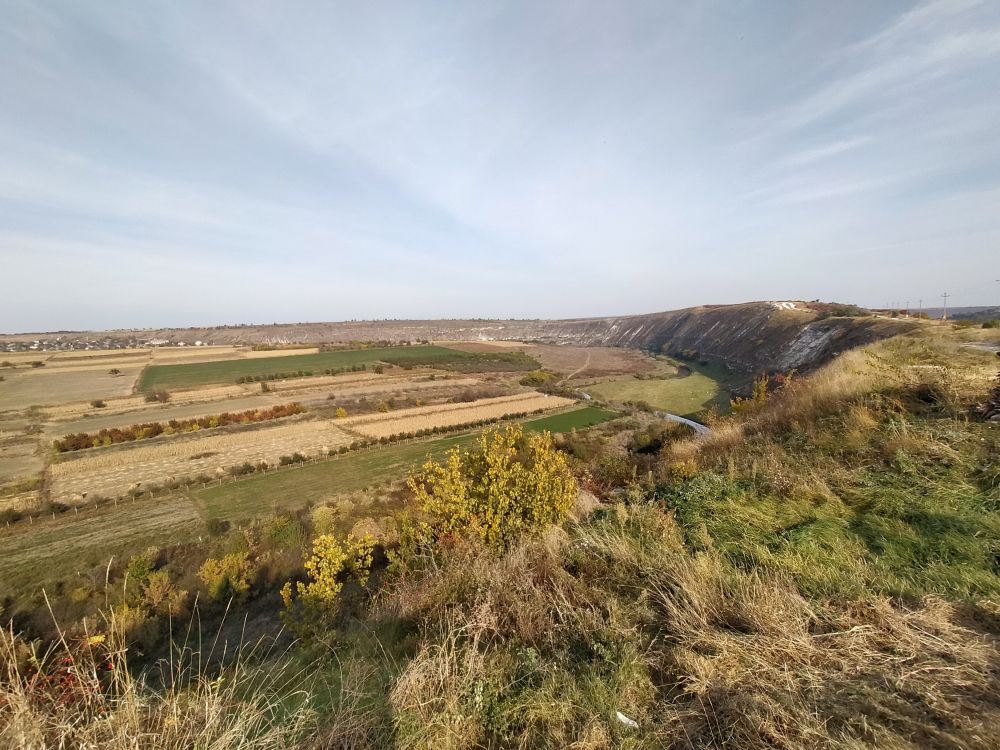Matteo Masotti, Francesca Crivellaro, Matteo Vittuari – University of Bologna

Rural landscapes in Butuceni.
Moldova is a small, landlocked country in eastern Europe with a population of just 2.5 million. Outmigration is a widespread phenomenon severely affecting future social and economic development in rural areas. AGRUMIG researchers have been examining the causes and consequences of migration since 2020, including engaging with local authorities to help tackle this complex issue.
“Migration is one of our points of interest since local governments are affected by migration; 80% of the citizens of our municipalities [have] left their hometowns.” Irina Luncasu, the Congress of Local Authorities, Chisinau. At a local level, current perceptions from Moldovan farmers reflect concerns about the future of the rural sector. Two farmers interviewed highlighted some of the issues: “90% of our problems [as agricultural producers] are migration-related. We lack specialists and young workers. Only middle-aged people [have] stayed; among them, some tractor or machinery operators. After a few years, there will be no one at all. We will be without workers, without sheep, without help, without tractor drivers,” stated a farmer key informant in Cahul, Southern Moldova.
Another farmer highlighted the need for economic and social stability to help encourage youth to return home. “Maybe after the change in government , the youth would return home. But they need a job; they need stability […]. This is the rationale: kids should return home knowing they will be stable and safe […]. This is the main reason – stability – and then everything else comes consequently. Families grow; they can afford to grow in number if they have stability…”. Farmer, key informant in Cubolta, Sîngerei district.
National and local authorities acknowledge the complexity of policy issues thrown up by migration from rural areas, including depopulation and brain drain. Over the last 10 years, the government has started implementing policies to better govern migration and rural development, addressing the prevention of outmigration from rural areas, how to make agriculture more attractive for younger generations, and how to attract returnees and encourage them to invest back in rural areas of the country.
In recent years, AGRUMIG research has supported Moldovan authorities in these efforts through interviews and policy dialogues with key stakeholders operating at different institutional levels. We have brought research results from a sample of 608 smallholders and 87 farmers from across the country into dialogues with representatives of several key governmental institutions, from the Ministry of Agriculture and Ministry of Health and Social Security to the Diaspora Relations Bureau, the Congress of Local Authorities, the National Agency for Agricultural Interventions and Payments-AIPA and the Organization for Small and Medium Enterprises Sector Development-ODIMM. Regional organizations have also been involved, including UNDP and IOM, as well as local authorities, universities, and farmers’ associations.
Important policy insights from the research include that seasonal and long-term migration is, for Moldovan rural smallholders, a strategy to cope with everyday problems, including the lack of job opportunities outside the agricultural sector – in other words, part of structural changes in rural areas. Other issues include low salaries and low purchasing power in rural communities, difficulties in accessing financial markets, lack of agricultural facilities, and, in general, wider economic instability across the country. Furthermore, after the establishment of the EU’s Eastern Partnership (EaP) in 2014, Moldova experienced a “Europeanization” of migration, with an increase in flows to EU countries (except for Russian-speaking regions such as Gagauzia), and a general lowering of the age of migrants.
To maximize the impact of AGRUMIG research and further support local and national authorities in defining policies that can enhance the positive effects of outmigration, results from AGRUMIG research – including comparisons with other countries – will be shared at a national policy event in late 2022.
For more information, contact, matteo.masotti8@unibo.it, francesca.crivellar4@unibo.it and matteo.vittuari@unibo.it.

Policy dialogue with representatives of a local association of farmers in Soroca – September 2021

Rural landscapes in Butuceni.
[1] Referring to the new Government and Head of State, Dr. Maia Sandu elected in 2020, when the Liberal Democratic party defeated the Socialist Party, in charge since independence from the USSR in 1991. [2] https://www.eeas.europa.eu/eeas/eastern-partnership_en





